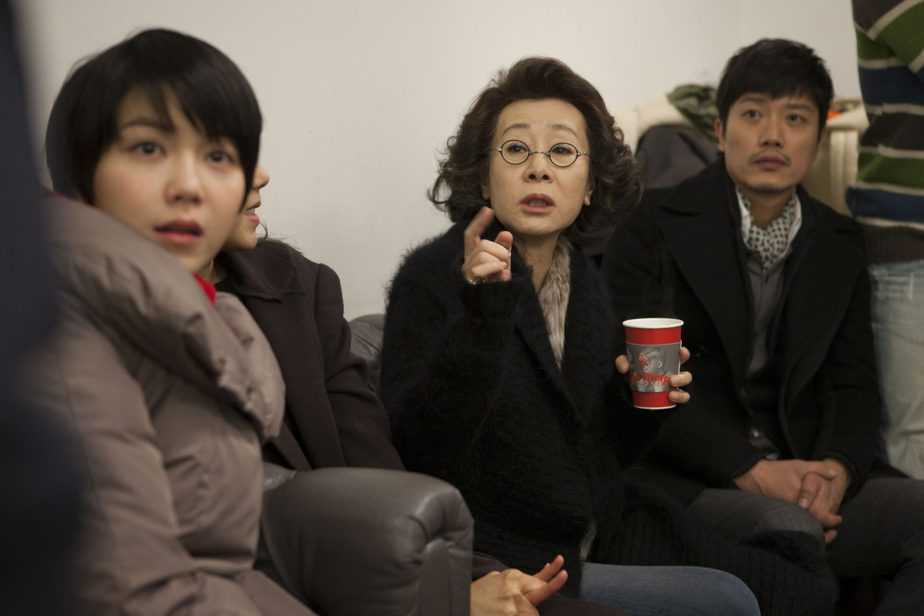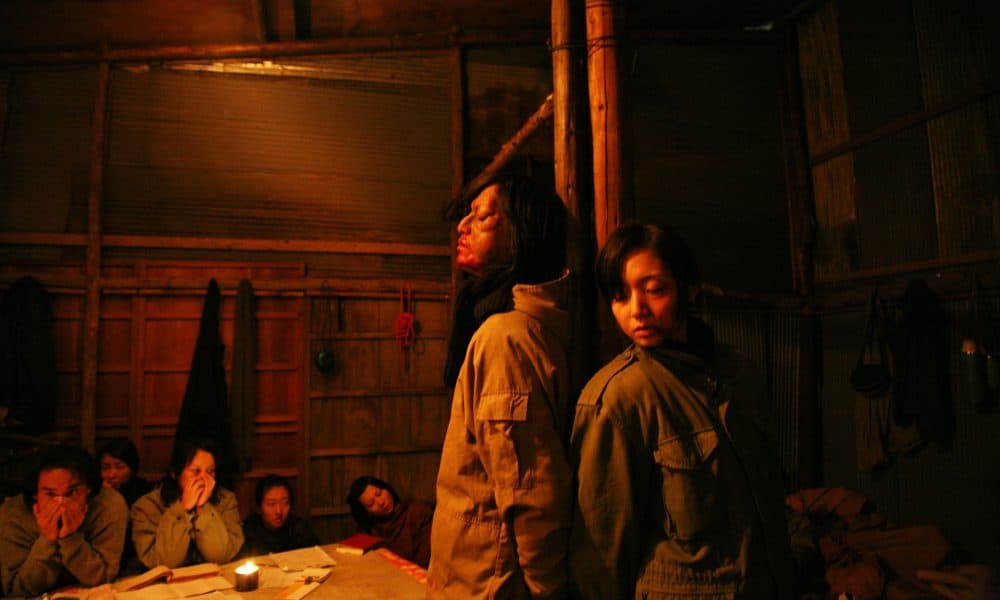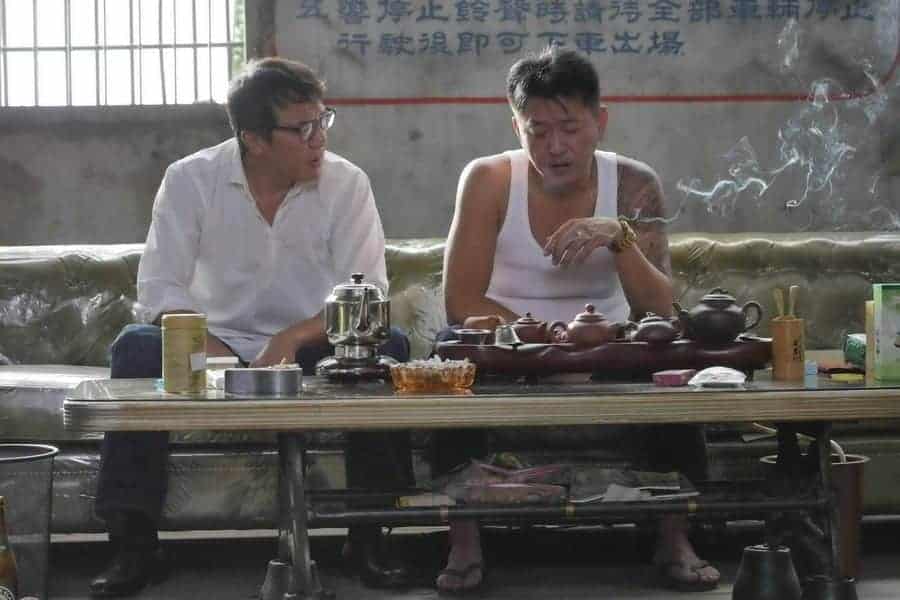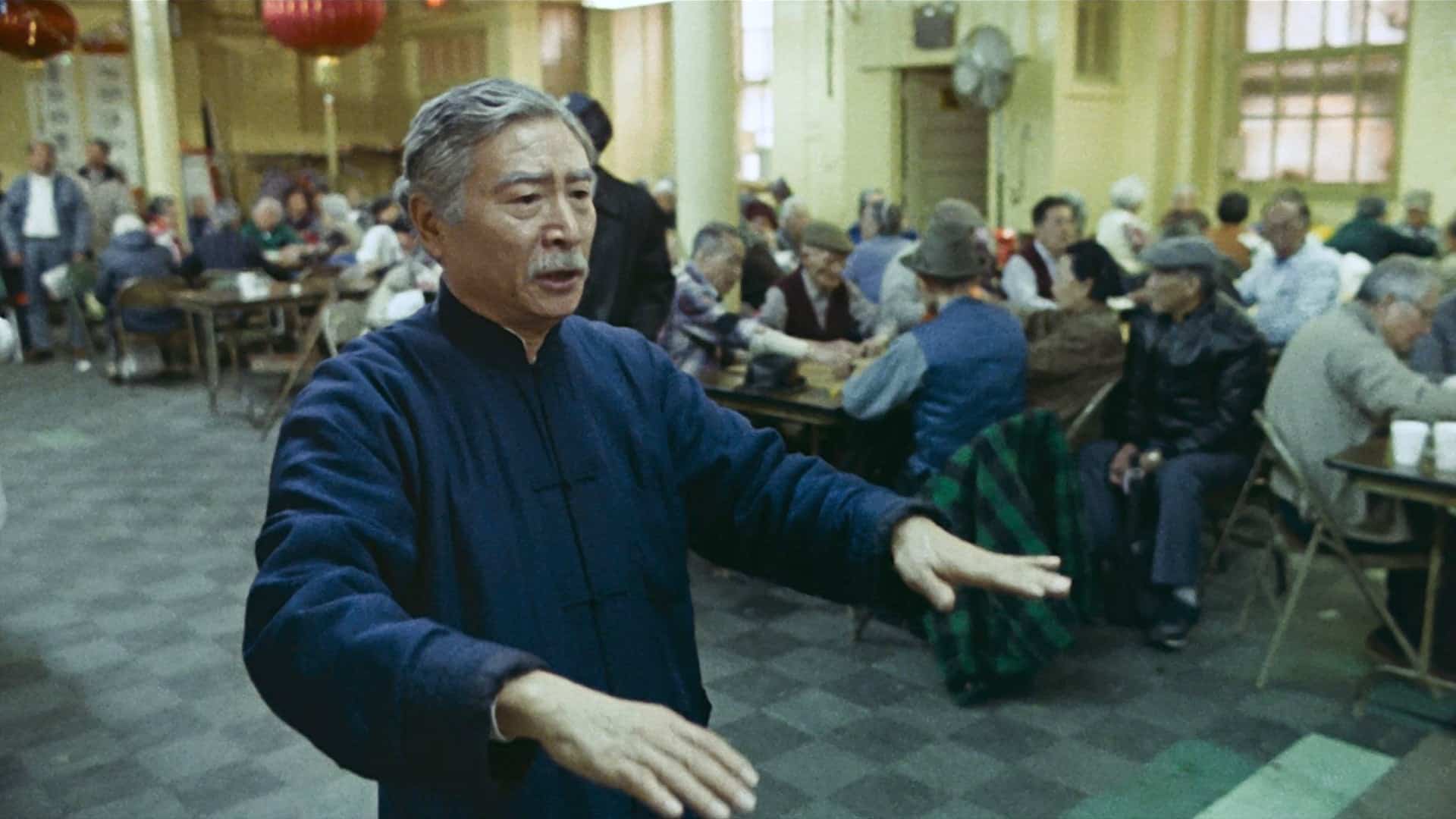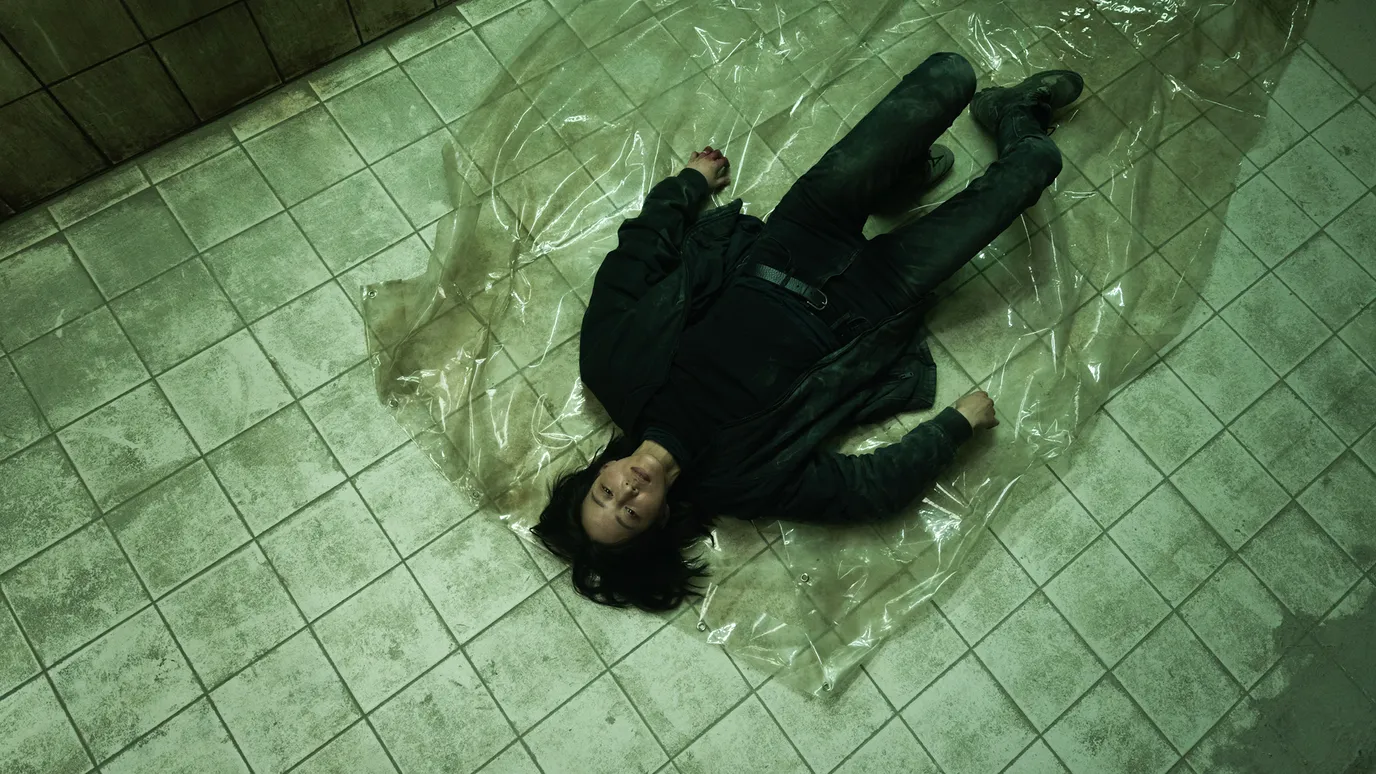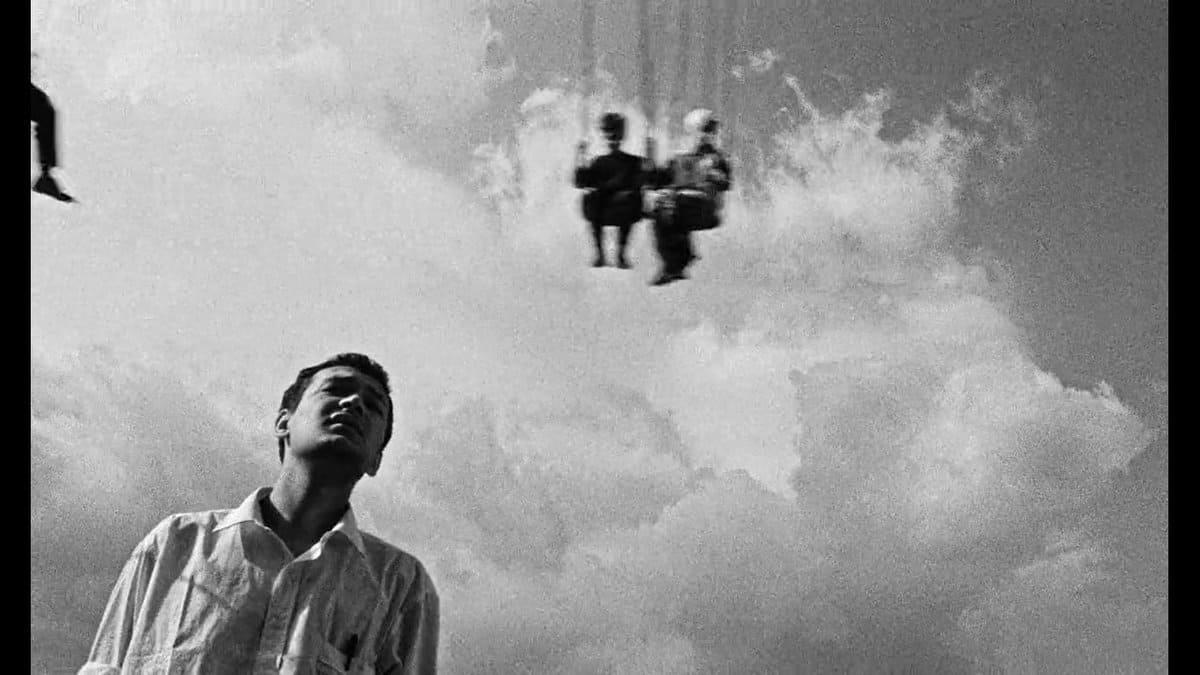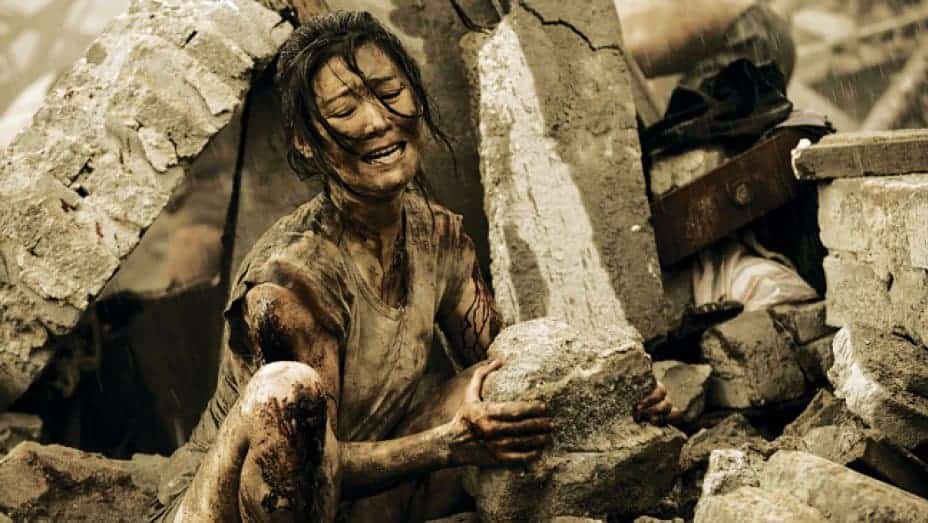The recent controversy at Cannes regarding the screening of “Okja”, the American-South Korean co-production for release on Netflix, is a sign of the reaction to new formats of distribution and viewing from the cinema industry. But, whether one likes it or not, these times are changing, and is the sort of thing we may see at film festivals in the future more frequently, as a shift in demand furthers. Another film from South Korea that looks at the industry's reaction to new and unconventional methods, pre-dating this controversy, is Lee Je-yong's 2012 “Behind the Camera”.
Buy This Title
In a post-modern scenario, the cast, by-and-large, play versions of themselves, asked to work on a ten-minute short advertisement film for a telecommunications company. This being an advert for a telecommunications company, the story is that of a director directing his cast and crew from a remote location, using the company's products. The twist is that Lee Je-yong, here playing himself as E J-yong, is not on set either. In fact, he's in Hollywood! Only able to communicate with his cast of high-profile Korean actors via Skype, quickly all sorts of technical problems arise: loss of internet connection; actors unable to understand what he is demanding of them; and a lack of a central point of management on set.
In slight exaggerated versions of themselves, the cast become unruly and distracted. Other directors and producers also show up on set, happy to witness the madness of an absent director and worsening the situation. Rumours as to E J-yong's exact location arise, and respect for him quickly diminishes. Eventually, they are able to pull together and get the film completed, although the experience for all concerned has been less than pleasant.
With a title such as “Behind the Camera”, this has the feel of a documentary about filmmaking. With the cast playing themselves, they hold discussions on set about their careers, heavily referencing previous films in which they have appeared, especially South Korean cinema royalty, Yoon Yeo-jeong. All players are introduced on screen with their name and their role in the short film. All shots that form part of the short film-within-the-film have the title “How to Fall in Love in Ten Minutes” on screen. This helps un-blur the boundaries between what is supposedly acting and what is supposedly real.
The technical aspects also mirror a “making-of” documentary, avoiding technical camerawork, with Eok Yu's handheld camera continually moving as a “fly-on-the-wall”. The acting is natural, perhaps a little tongue-in-cheek from certain performers, and not too taxing on their talents. Indeed, for all involved this has the feel of a companion piece: this is not a film that has put great strains on anyone, relatively short in running time and simple in terms of technical aspects, script and acting.
“Behind the Camera”, therefore, is more of a comment on the cinema industry than an out-and-out entertainment piece. One for cinema insiders to laugh at, as a satire of the relationships between cast and crew in making a film.
But one point Lee does make is the importance of the director. Without him on set, the cast and crew feel lost as to what they are doing and what is demanded from them. The actors look to him for direction, but are not always able to find him online, with no one else to turn to but each other. Without him there, anarchy can breakout. If film directing is endlessly answering a never-ending list of questions, the main question from the cast is: “Where are you?!”


